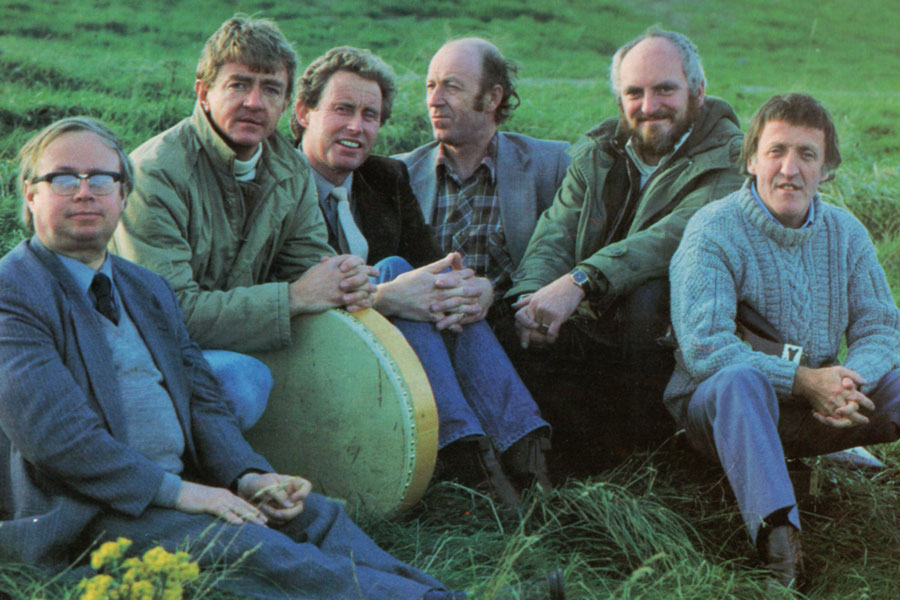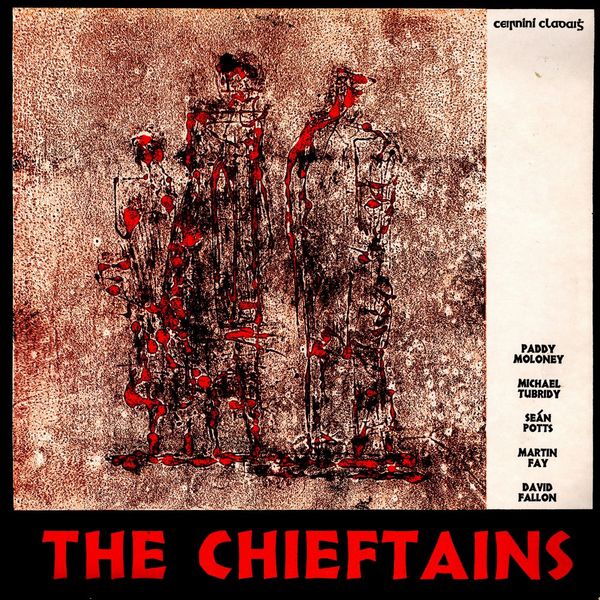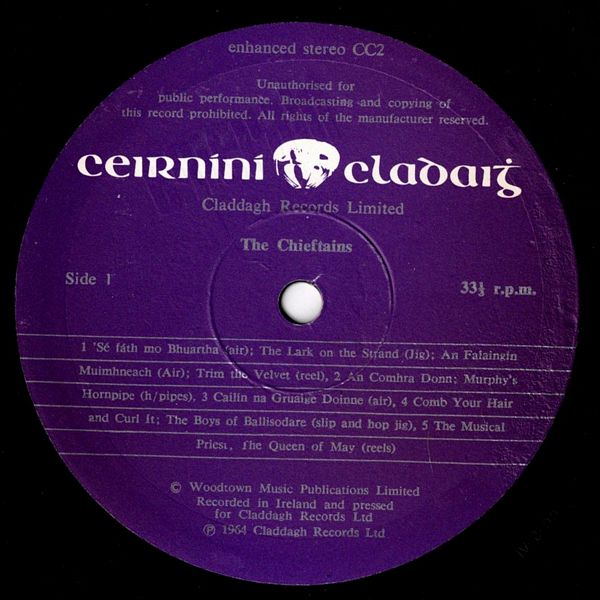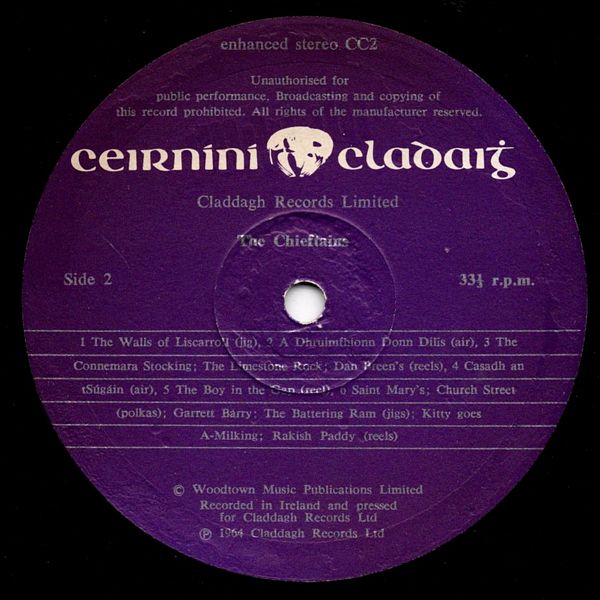

 |


 |
Sleeve Notes
'There's music there
And all kinds of sweetness
In the piper's greeting
At the end of day …'
So sings the poet about the 'quiet valley' where his true love dwells, in the song Sé fáth mo Bhuartha, the melody of which is the first we hear on this first recording made by THE CHIEFTAINS (side 1, band 1) … And it's a good verse to introduce the Chieftains themselves, and their music. Not, of course, that the music is theirs alone: they would be quick to disclaim any proprietary rights in the song-tunes and dance-tunes of Ireland which are the common heritage of all with ears to hear them and the skill and the soul to play them. Many hands went into the making of this music 'agus is i bhfad i dtalamh ata na préamha aige.'
The renewal of interest in Irish folk music, which began in the years after the Second World War and was then dismissed by some as a mere nine days' wonder, is now generally recognised as one of the things from our past which gives Irish life in the second half of the twentieth century its distinctive colour and flavour. Many of the songs and tunes which have captured the young people of to-day are as old — well not, perhaps, quite as old as the hills, but as old as folk-memory itself … and in Ireland we know how old that is.
The music on this disc, then, is traditional in the deepest sense. It has been subjected to the 'arrangement' neither of the academic music-room nor of the pop-factory. Every tune is played as you would hear it in a country kitchen or a village pub. Each selection has, however, been carefully chosen to illustrate a different mood or aspect of our music, and the sequence and blend of instruments have been equally carefully set out to show all the 'kinds of sweetness' that they hold. This has been done by the Chieftains themselves — under the guidance of the paramount Chieftain, 'ard-ri', or presiding player, PADDY MOLONEY.
The first selection has, in fact, been designed to introduce each of the players and the instruments they play. PADDY himself and SEÁN POTTS — a member of one of our best-known folk-music families — play the first tune on two tin-whistles, the humblest but not the least sweet of our traditional instruments. Then follows a jig, The Lark on the Strand, played by MICHAEL TUBRIDY on the flute with DAVID FALLON on the bodhrán — a goatskin tambourine, of his own making — and MARTIN FAY on the fiddle.
The next tune, An Falaingin Muimhneach, is of great interest. It is traditionally believed to be of Spanish origin, having been brought, they say, to Kerry in the 16th century by some shipwrecked survivor of the Armada. Be that as it may — the title simply means the Munster Cloak — the tune certainly has a touch of the warm South in its gay rhythms. It is played by MICHAEL TUBRIDY, this time on the concertina. This introductory selection ends with a reel Trim the Velvet, played by PADDY MOLONEY on the pipe-chanter. This chanter is from one of the three sets of Uilleann pipes played here by PADDY; this one, which is tuned to concert pitch, was made for him by that very distinguished piper and pipe-maker Leo Rowsome. The second, which we hear in the lovely tune played in the third selection, is a 'flat set' with quite a history. Michael Egan, a celebrated Dublin pipe-maker (of the 19th century) went to America to make them for an exiled enthusiast, John Coughlan, who subsequently went to live in Australia, taking the set with him. They were brought to Ireland a few years ago and now belong to a Dublin piper, Dan Dowd, who kindly lent them for this recording. The third set, of which we hear only the chanter, in A Dhruimfhionn Donn Dilís belongs to Peadar Flynn and was made by McCrone.
In all there are eleven selections on the record giving, as we have said, an excellent cross-section of the variety of our traditional instrumental music. Most of the tunes are for dancing — reels, hornpipes, jigs: side 1, band 4, by the way, illustrates the distinct and subtle rhythms of the slip-jig Comb Your Hair and Curl it and the hop-jig The Boys of Ballisodare. The final selection (side 2, band 6) is a group of reels specially chosen for the dancing of a 'half-set', and if you've never taken part in one, get someone to show you the steps . . . then listen, learn and dance!
But apart from music for dancing we have, as well as Sé fáth mo Bhuartha, three other fine 'song-tunes'. These are Cailín na Gruaige Doinne (The Brown-haired Girl; side 1, band 3), A Dhruimfhionn Donn Dilís (side 2, band 2) one of the great 'secret songs' of the 18th century where Eire is addressed as 'The Silk of the Kine' and Casadh an tSúgáin (The Twisting of the Rope; side 2, band 4) a splendid song of the fortunes of love.
Bainfidh an Gaeilgeoir taithneamh ar leith as an léiriú ceoil a déantar ar na hamhráin seo. In éamais na bhfocal tá spiorad agus brí na n-amhrán le haithint go soiléir, agus níl blas ar bith dá ndúchas ar iarraidh. Treise libh a Fhlatha!
Seán Mac Réamoinn.